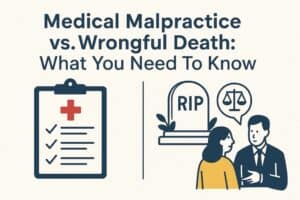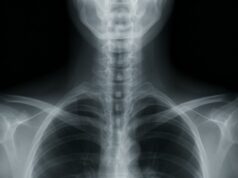The National Practitioner Data Bank has reported in recent years that medical malpractice has an average of 12,414 cases reported annually. The Institute of Medicine records approximately 98,000 Americans die each year due to preventable medical errors (including 7,000 deaths caused by medication errors).

To learn more about the difference between medical malpractice and wrongful death and how you can legally deal with them, you can schedule a consultation at https://dougedwardslaw.com/.
Let’s identify everything you have to know about these two so you can make informed choices.
Understanding Medical Malpractice
Medical malpractice happens when a health professional fails to deliver a standard of care to a patient who has suffered harm due to medical failure like surgical or diagnostic errors and incorrect use of medication.
When you become a victim, see to it that you document and provide proof to support the claims. Seek legal counsel if you have any suspicion of malpractice to determine whether or not you have a claim.
Key Elements of Wrongful Death Claims
Primarily prove that a death was caused by some illegal act caused by another party. You also need to prove that a party owed a duty of care to the deceased and that the breach of that duty caused the accident leading to his death.
You also need to show that your loved one’s death caused financial harm to you and the other survivors.
Identify all appropriate beneficiaries, like family members who can seek compensation.
Differences Between Medical Malpractice and Wrongful Death
Let’s differentiate medical malpractice vs. wrongful death. Medical malpractice involves a medical provider being liable when he or she falls below reasonable care standards, risking a patient’s life. The family of a person who died of wrongful death will seek a form of damages. This could be due to medical negligence or accidents.
In this case, it is the plaintiff’s duty to prove that the cause of death is the medical provider’s negligence.
The surviving family experiences emotional and financial losses in a wrongful death action.
Legal Process for Filing Claims
When filing for claims, you must first gather the documentation related to the claim, like medical records. Have a medical expert’s opinion who can examine the facts and determine if negligence has indeed occurred.
File a complaint to the court with a demand letter stating the basis for your claim and the amount of compensation you seek.
To avoid any delays, check updates with the state laws about statutes of limitation. Once the limitation has expired, you either negotiate or go for trial.
Seeking Legal Assistance and Support
Consult with a lawyer who specializes in medical negligence or criminal law. Gather all relevant documents, medical records, and evidence of negligence. Your lawyer can help you assess the strength of your case.
Lawyers can also deal with the insurance company on your behalf to negotiate fair compensation for you.
With the right people to support you, you can get over this dark period of your family and your life. Whether it is medical negligence or wrongful death of a loved one, you have the right to seek the compensation you deserve.






